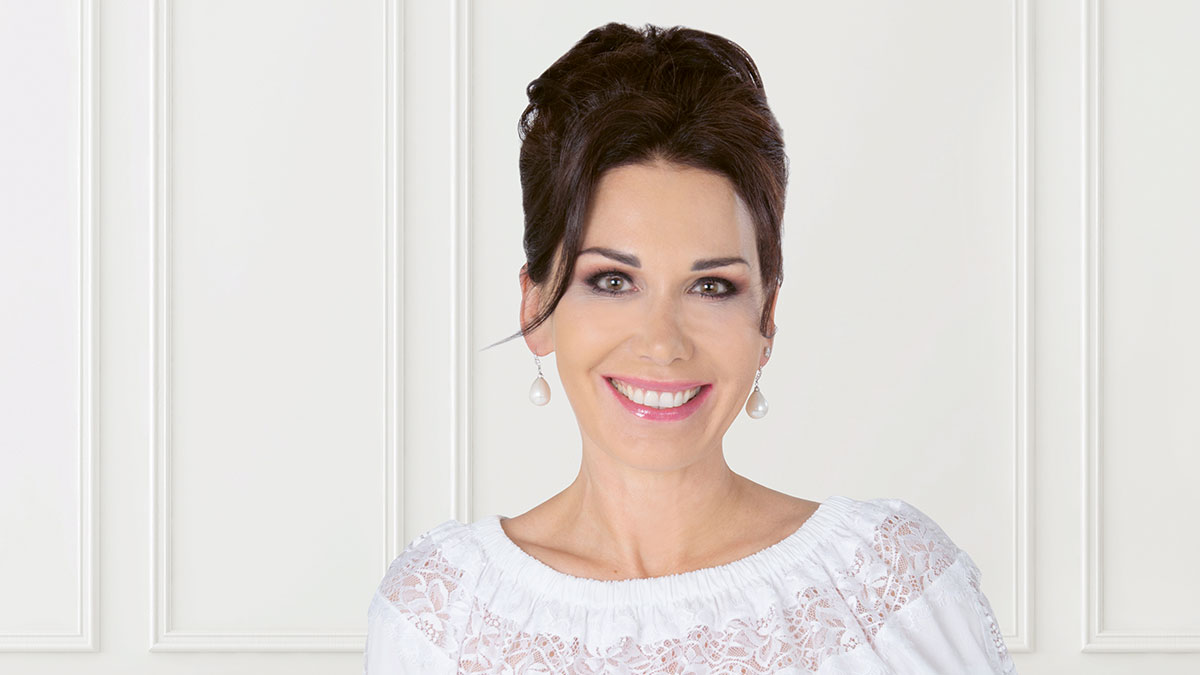
“Some people only shine when you give them a little help.”
Publié le 05.10.2017 HAEC
Excerpt from an interview with Dr. Colette Camenisch, consulting physician for aesthetic surgery
Dr. Colette Camenisch heads the Clinic Beethovenstrasse in Zurich. In this Vontobel interview, she explains why patients are sometimes denied treatment. And what it means to suddenly be yourself in your own skin.

Dr. Colette Camenisch is a top surgeon for plastic, reconstructive, and aesthetic treatments. © Photo: claudialarsen.ch
She operates on places people don’t like to talk about. And she doesn’t mince words when a patient requests a treatment that violates her ethical principles. That is because the ideal appearance as envisaged by her patients is not always something that can be created with a scalpel. Colette Camenisch is not simply a top cosmetic surgeon. She sees her task as fulfilled when patients can identify with their bodies and accept themselves. The psychological care of her patients is as crucial as her technical skills.
Dr. Camenisch, what does beauty mean to you?
What I find beautiful isn’t important. I embrace my patients the way they are. Then I try to create something optimal for this person. That is my beauty ideal.
How does your work affect a person’s identity?
I don’t differentiate between what’s inside a person and what’s outside. If someone is happy and motivated, I find him or her attractive. A charming, self-confident man who radiates male attributes such as poise and self-confidence is attractive to women, even if he doesn’t correspond to the usual notions of what’s handsome.
So beauty comes from within?
It’s an interplay between inside and outside, I’m convinced of that. A study was conducted once of psychiatric patients in which one half of the subjects had their so-called frown lines treated while the other half did not. The results: the patients whose wrinkles had been treated required less antidepressants. This is proof that when you look better, you feel better.
Nevertheless, do your patients find that part of their identity is going under the knife?
No. I can make a contribution toward how someone feels, but I can’t influence who someone is. Sometimes people only shine when you give them a little help. What I do is change anatomical problems so that a person has better access to his identity. If this succeeds, then I’ve done my work well.
Can you give us an example from your practice?
Recently, I reduced a woman’s breast, because it was very conspicuous and burdensome for her. When I took off the bandages, she cried for joy. It was a very emotional moment. I really sensed that this woman was able to look in the mirror and identify with her body and accept it for the first time in years.
How long does this satisfaction last?
That depends on the type of procedure. The patient I just mentioned will probably not undergo any further interventions. Other patients come to me every six months for frown line injections.
At what point do your patients accept themselves the way they are?
For some of them, the effort does become too much at some point. In addition, how you look on the outside takes second priority as soon as you begin to suffer from an illness. If a patient is in pain or has contracted a life-threatening illness, beauty and attractiveness no longer play such an important role.
Do you also treat people who you do not believe need any treatment?
It’s very difficult to deny treatment to someone who is almost blemish-free. But I have done that before. A patient recently came to see me because I would not treat her friend. This gave her confidence in me. I work according to my own ethical standards and my own limits. However, these have no doubt offended some people.
But if an expert on beauty tells you that you don’t need any treatment, you should be happy, shouldn’t you?
You would think so. But at that moment, these patients see me as someone who is not taking them seriously. Often they don’t perceive themselves as beautiful; they have a distorted picture of themselves. Then I come along and tell them they’re perfect – when that happens, they don’t feel understood.
In spite of the strongly growing demand for cosmetic surgery, it still seems to be a taboo subject.
Well, I’m certainly not someone who is contributing to that perception [laughs]! Even if my directness has meant that I’ve fallen on my face a few times. But it’s thanks to feminists that I was allowed to study medicine and serve as the director of my own clinic. I contribute to women’s well-being – even if I operate on places that people don’t like to talk about.
Do men also come to you?
Yes, thank God [laughs]! But still far too few. Only 10% of my patients are men, but this number is on the rise. I think men, too, are allowed to make a little effort in terms of their appearance. Having a fat wallet and being successful isn’t sufficient.
Where will your industry be in 20 years?
In the future, we will be working much more with the body’s own materials, for example with stem cells and autologous fat. Perhaps in the future, it will be possible to perform surgery that will leave scars that are less visible than today. And I firmly believe in a holistic approach. You can only achieve satisfactory results by bringing a number of different disciplines together.
Will you be able to stop the aging process in the future?
In 2009, the team that discovered the enzyme telomerase received the Nobel Prize for Medicine. They found that this “immortality enzyme” is present in certain kinds of cells and can repair them as they age. Perhaps with this knowledge, we will someday be able to influence the aging process.
Something else that belongs to human identity is our mortality. How do your patients deal with this?
Dying per se is not the problem. Why my patients want to do is stay healthy as they age and grow old with a certain dignity. You don’t have to live forever. But the time that you do have, you want to experience in a healthy and active way. I’ve never yet encountered a patient with the desire for eternal life.
About Dr. med. Colette Camenisch
Dr. Colette Camenisch is a consulting physician for surgery and consulting physician for plastic, reconstructive, and aesthetic surgery. She worked at the renowned Akademikliniken in Stockholm and at the clinic “Pyramide am See” in Zurich. Since April 2017, Dr. Camenisch has been the director of the “Clinic Beethovenstrasse” in Zurich. She is specialized in breast surgery, female intimate surgery, and aesthetic-surgical facial rejuvenation.
Who are we? What makes us matter? The question of our identity moves society; art, science, politics and every one of us seek answers. This interview with Dr. Colette Camenisch is one of numerous contributions that illuminate the topic of identity from a new, inspiring perspective.